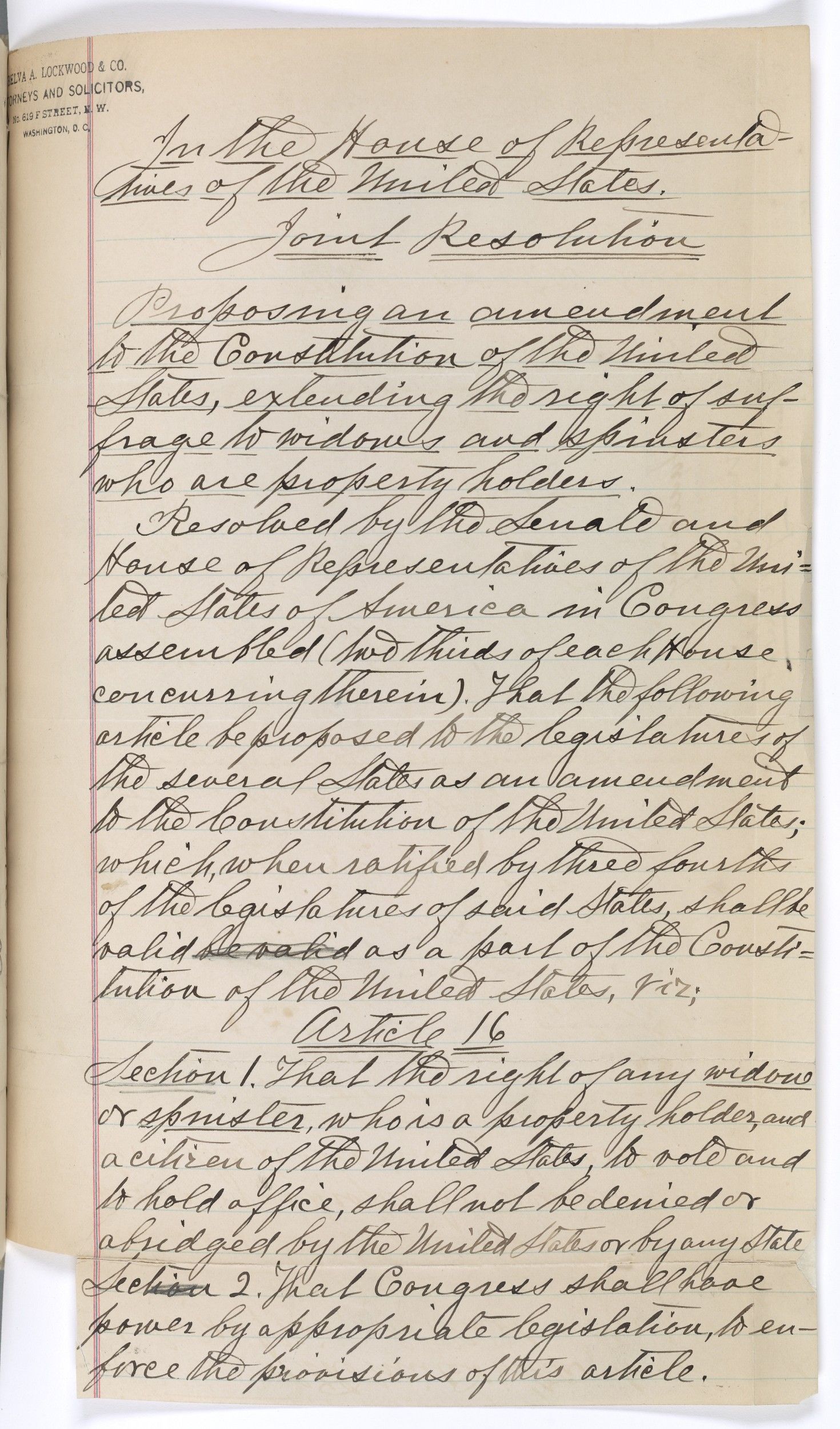House Joint Resolution Proposing an Amendment to Extend the Right to Vote to Property Holding Widows and Spinsters
4/30/1888
Add to Favorites:
Add all page(s) of this document to activity:

H.J. Res. 159 proposed a constitutional amendment to grant women the right to vote and hold public office if they were widows or spinsters and owned property. Before the 19th Amendment granted women voting rights in 1920, this 1888 resolution proposed voting rights for widows and spinsters only, suggesting that married women were “represented” by their husbands. Part serious and part mocking, suffragist Elizabeth Cady Stanton testified to Congress, stating, “they are industrious, common-sense women...who love their country (having no husbands to love) better than themselves.”
A joint resolution is a formal opinion adopted by both houses of the legislative branch. A constitutional amendment must be passed as a joint resolution before it is sent to the states for ratification.
A joint resolution is a formal opinion adopted by both houses of the legislative branch. A constitutional amendment must be passed as a joint resolution before it is sent to the states for ratification.
Transcript
In the House if Representatives of the United StatesJoint Resolution
Resolved by the Senate and House of Representatives of the United States of America in Congress assembled (two thirds of each House, concurring therein). That the following article be proposed to the legislatures of the several States as an amendment to the Constitution of the United states; which , when ratified by three fourths of the legislatures of the said States, shall be valid be valid as a part of the Constitution of the United States, viz;
Article 16
Section I. That the right of any widow or spinster, who is a property holder, and a citizen of the United States, to vote and to hold office, shall not be denied or abridged by the United States or by any State
Section 2, That Congress shall have power by appropriate legislation, to enforce the provisions of this article.
This primary source comes from the Records of the U.S. House of Representatives.
National Archives Identifier: 25466157
Full Citation: House Joint Resolution (H.J. Res.) 159, Proposing an Amendment to the Constitution to Extend the Right to Vote to Widows and Spinsters who are Property Holders; 4/30/1888; Bills and Resolutions Originating in the House of Representatives during the 50th Congress; (HR50A-B2); Bills and Resolutions Originating in the House, 1789 - 1974; Records of the U.S. House of Representatives, Record Group 233; National Archives Building, Washington, DC. [Online Version, https://docsteach.org/documents/document/amendment-voting-widows-spinsters, April 24, 2024]Rights: Public Domain, Free of Known Copyright Restrictions. Learn more on our privacy and legal page.



